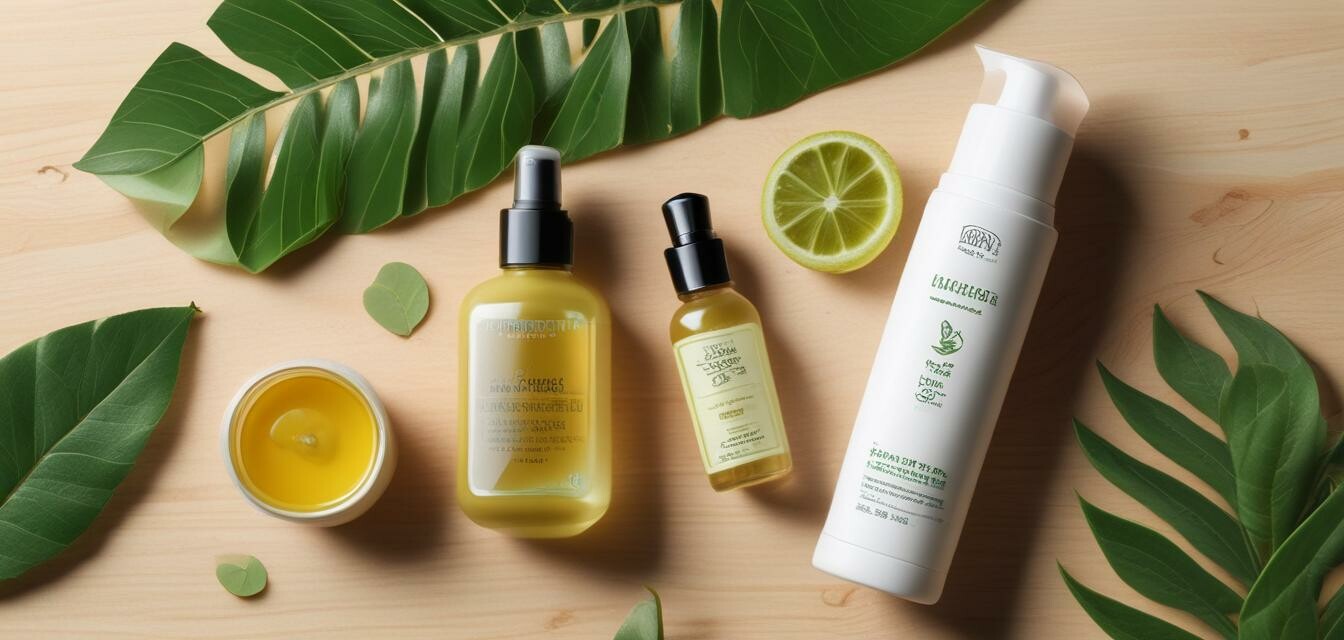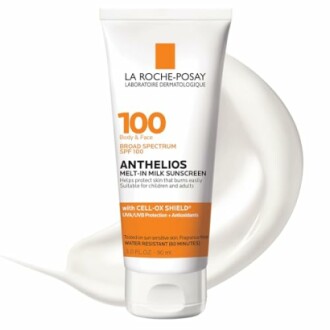
Choosing the Right Sunscreen: Natural vs. Chemical
Key Takeaways
- Understand the difference between natural and chemical sunscreens.
- Choosing the right sunscreen depends on your skin type and needs.
- Look for broad-spectrum protection to shield against UVA and UVB rays.
- La Roche-Posay Anthelios Melt-In Milk Sunscreen is an excellent organic option.
- Always check for skin sensitives and allergy tests.
With the sunny days upon us, it’s essential to protect your skin from harmful UV rays. Sunscreen is a crucial part of your skincare routine, but with so many options available, how do you choose the right type for you? This article breaks down the differences between natural and chemical sunscreens and highlights key factors to consider when selecting the best product for your skin.
Understanding Sunscreens
Sunscreens generally fall into two categories: natural (or mineral) and chemical. Each type has its own benefits and drawbacks. Let's explore them further.
Natural Sunscreens
- Usually contain minerals like zinc oxide or titanium dioxide.
- Provide a physical barrier that reflects UV rays from the skin.
- Often free of synthetic fragrances and chemicals.
- Preferred for sensitive skin types.
- May leave a white cast on the skin.
Chemical Sunscreens
- Contain synthetic ingredients that absorb UV rays.
- Apply more easily and typically don't leave a white cast.
- Can cause irritation in sensitive skin.
- Often include ingredients like avobenzone and octisalate.
- May need to be applied 30 minutes before sun exposure.
Key Differences Comparison
| Feature | Natural Sunscreens | Chemical Sunscreens |
|---|---|---|
| Active Ingredients | Zinc oxide, titanium dioxide | Avobenzone, octinoxate |
| Application | Thicker, may leave whiteness | Smooth and clear |
| Reef Safety | Generally reef-safe | Some ingredients harmful to reefs |
| Skin Sensitivity | Gentle on sensitive skin | Can cause irritation |
| Expiration | Generally lasts longer if stored properly | May lose effectiveness faster |
Choosing the Right Sunscreen for You
When selecting a sunscreen, consider the following aspects:
- Skin Type: Identify if your skin is sensitive, oily, or dry to choose a compatible formula.
- SPF Level: Look for broad-spectrum protection with at least SPF 30.
- Water Resistance: If you'll be swimming or sweating, choose a water-resistant option.
- Ingredient Labels: Review ingredient lists carefully, especially if you have allergies.
Spotlight Product: La Roche-Posay Anthelios Melt-In Milk Sunscreen SPF 100
La Roche-Posay Anthelios Melt-In Milk Sunscreen SPF 100
A high SPF sunscreen suitable for sensitive skin, providing broad-spectrum protection against harmful rays.
Learn MoreLong-Term Skin Health
Regular usage of sunscreen helps mitigate skin aging caused by sun exposure. It can also help reduce the risk of developing skin cancers. Whether you choose a natural or chemical formula, the essential factor is consistent protection.
Conclusion
When it comes to selecting the right sunscreen, understanding the differences between natural and chemical options is crucial to finding a product that suits your needs and skin type. Always prioritize ingredients, protection levels, and your skin's reactions. Don’t forget to reapply every two hours and after swimming or sweating!
Tips for Sunscreen Application
- Apply sunscreen generously and evenly on all exposed skin.
- Start applying sunscreen 15-30 minutes before sun exposure.
- Don't forget areas like your ears, neck, and scalp.
- Reapply every two hours, or more often if swimming or sweating.
- Use in conjunction with other sun protection measures like hats and sunglasses.
If you're interested in exploring more about organic options, check out our articles on Organic Skin Cleansers and Skincare Routine Tips for additional insight.



